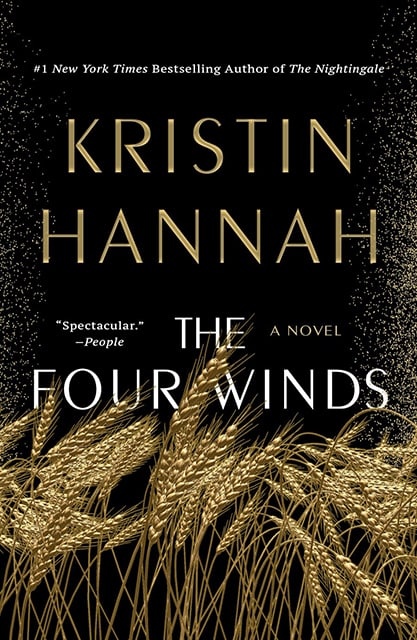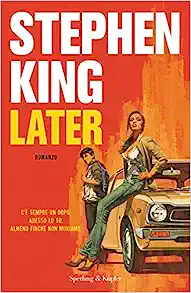Ever wondered about the thin line between good and evil, right and wrong? In ‘Mother Night’ by Kurt Vonnegut Jr., this blurred boundary takes center stage in a captivating tale of moral ambiguity and wartime deception.
![Mother Night [A Tale of Identity and Deception]](https://www.booksinbrain.com/wp-content/uploads/2024/05/Mother-Night-A-Tale-of-Identity-and-Deception.jpg)
Discover why ‘Mother Night’ continues to captivate readers decades after its initial publication
What Is Mother Night About?
“Mother Night” is a novel that combines elements of satire, black comedy, and psychological fiction. This novel is first published in 1961. Set against the backdrop of World War II and its aftermath.
It delves into themes of identity, morality, and the consequences of actions. At its core, it’s a story about the blurred lines between good and evil, truth and deception, set against the backdrop of World War II and its aftermath.
The story follows Howard W. Campbell Jr., an American playwright living in Germany during World War II. He becomes a Nazi propagandist, spreading their messages through his writing.
As the war ends, But he finds himself in a tough spot. Badly he’s accused of being a traitor and faces a trial for his actions. But here’s the twist: Campbell claims he was actually working as a double agent for the Allies the whole time, using his position to secretly help them.
Despite his efforts to undermine the Nazis, his broadcasts have still spread their hateful ideology. He struggles with guilt over his actions and questions the true nature of his identity. Is he a hero or a villain? Can he be both?
The story is framed as Campbell’s memoir, written while he awaits trial for war crimes in an Israeli prison. It challenges readers to question their own moral compasses and consider the consequences of remaining silent in the face of injustice. It explores the moral ambiguity of his situation and raises questions about the nature of truth, loyalty, and guilt.
Why the Title Mother Night?
“The title ‘Mother Night’ is actually carries several layers of meaning that intertwine with the themes and narrative of the book.
“The title comes from parts of Shakespeare’s ‘Hamlet’ and Goethe’s ‘Faust.’ It suggests that even in the darkest times, there can be a kind of twisted comfort or familiarity, like the darkness of night being a kind of motherly presence.
In the play “Hamlet” by William Shakespeare, where Hamlet speaks of “the time is out of joint; O cursed spite, that ever I was born to set it right!” The phrase refers to a time when the world seems chaotic and out of order.
Similarly, the phrase from Goethe’s “Faust” that is referenced is likely “Die Mutter Nacht” or “Mother Night” in English. In the context of “Faust,” this phrase refers to a time when darkness or night is like a nurturing mother, providing a sense of comfort and safety.
Vonnegut’s protagonist, Howard W. Campbell Jr., is similarly cursed in his role as a propagandist for the Nazis during World War II. He wrestles with the moral ambiguity of his actions and struggles with the concept of “good” and “evil.”
So, in essence, “Mother Night” hints at the complexity of morality and the idea that even in darkness, there can be a strange sort of comfort.
Is Mother Night Based on a True Story?
“Mother Night” is not based on a specific true story, it is heavily influenced by Vonnegut’s own experiences and observations during World War II.
During World War II, Vonnegut served in the U.S. Army and was captured by German forces during the Battle of the Bulge. He was then held as a prisoner of war in Dresden, Germany, where he witnessed the devastating firebombing of the city by Allied forces in February 1945. These experiences deeply impacted Vonnegut and influenced much of his writing; “Mother Night” is no exception.
While the character and events in “Mother Night” are fictional, they are informed by Vonnegut’s observations of individuals who found themselves in morally ambiguous situations during the war.
Meet the Characters in Mother Night
“Mother Night” by Kurt Vonnegut indeed features a cast of complex characters, each with their own unique contributions to the story. Let’s know about some of the key characters:
Howard W. Campbell Jr.: Imagine a guy who writes plays and wears fancy clothes, but deep down, he’s struggling with some big questions. He’s like a puzzle—trying to figure out what’s right and wrong when the world seems all mixed up.
Helga Noth: Howard and Helga share a deep bond, as Helga is Howard’s wife. She is like a strong, elegant lady who’s always there for Howard, no matter what. She’s like a shining light in his life, showing him that love is powerful even when things are tough.
Frank Wirtanen: Frank is a bit of a mystery guy. He’s friendly, but you can tell he’s got secrets. He’s like a chess player, thinking ahead and making moves in a game where trust is hard to find.
George Kraft: Picture a smooth-talking guy who seems nice but might not be. He’s like a snake, charming and slippery, leading people into trouble without them even realizing it. Here George Kraft is a manipulative character who exploits Howard’s talents for his own gain. He presents himself as a friend but ultimately betrays Howard, showcasing the theme of deception and betrayal.
Adolf Eichmann: Eichmann represents the embodiment of the Nazi regime’s brutality and inhumanity. He is all about rules and order, but behind his serious face, there’s not much humanity. He’s like a robot, following orders without thinking about the people he hurts along the way.
Werner Noth: Werner is like a brave soldier fighting against bad guys. He’s seen a lot of bad stuff, but he never gives up hope for a better world. He’s like a hero, standing up for what’s right even when it’s hard.
Lionel Jones: Lionel is full of life and energy, always ready to speak his mind. He’s like a firecracker, sparking conversations and shaking things up wherever he goes.
Resi Noth: Resi is like a warm hug on a cold day, bringing comfort and love to everyone around her. She’s like a wise grandmother, with a heart full of stories and a spirit that never gives up.
Dr. Jones: A wise old man with a twinkle in his eye, like a grandfather who knows all the secrets of the world. He’s like a guiding light for Howard, offering wisdom and perspective in times of uncertainty.
Helmuth von Kleist: Von Kleist is Howard’s childhood friend who remains loyal to him despite Howard’s controversial past. With a sense of duty, he stands by Howard’s side through thick and thin. He’s like a knight, bound by honor and loyalty even in the midst of chaos.
Campbell’s Parents: Howard’s parents are like echoes from the past, their presence a reminder of where he comes from. They’re like a warm embrace, offering comfort and stability amidst the turmoil of Howard’s life.
Friedrich Krapptauer: Krapptauer is like a kindred spirit to Howard, sharing his passion for art and creativity. He is like a fellow traveler on a journey through the complexities of life, offering companionship and camaraderie along the way.
Brewster: Brewster is like a curious detective, probing Howard for answers and unraveling the mystery of his past. He’s like a storyteller, weaving together the threads of Howard’s life into a compelling narrative for the world to see.
What Is The Message of Mother Night?
In “Mother Night” by Kurt Vonnegut, several key messages emerge:
People can be both good and bad: Vonnegut explores the duality of human nature, suggesting that individuals possess both virtuous and malevolent qualities.
We’re responsible for our actions, no matter what: Personal accountability is emphasized, highlighting that individuals are accountable for their choices and behaviors, regardless of external influences.
Things can look different depending on your perspective: The novel underscores the subjective nature of truth and the importance of considering different viewpoints when interpreting events.
Extremism and blind belief can cause a lot of harm: Vonnegut critiques ideological extremism and blind loyalty, illustrating how they can lead to destructive consequences.
Even if you’ve done bad things, you can still try to make things right: The theme of redemption is prominent, as characters like Howard Campbell strive to reconcile their past actions and seek forgiveness.
War and politics can be pretty silly and messed up: Through satire, Vonnegut highlights the absurdity of war and politics, portraying them as chaotic and irrational endeavors.
Art and creativity are important, but they also come with responsibilities: The ethical implications of artistic expression are explored, emphasizing the responsibility of artists to society.
Figuring out who you really are is tough and sometimes confusing: The complexity of identity is a central theme, as characters grapple with questions of self-perception and societal expectations.
Sometimes, what’s right and wrong isn’t so clear: The ambiguity of morality is underscored, suggesting that distinguishing between right and wrong can be challenging in certain situations.
Trust and betrayal are big themes too: The novel explores the themes of trust and betrayal, showcasing how relationships can be tested and betrayed under various circumstances.
In summary, “Mother Night” offers a multifaceted exploration of human nature, morality, and society. It urges readers to consider the complexities of existence and the consequences of our actions.
The Bottom Line
The masterpiece “Mother Night” is a mirror reflecting our own humanity. It shows us parts of ourselves we might not want to see, but facing them can help us grow and understand ourselves better.
So, for those yet to experience “Mother Night,” let you get lost in its story, wrestle with its tough questions, and come out the other side feeling wiser and more enlightened. It’s a journey worth taking, one that could change you forever.


